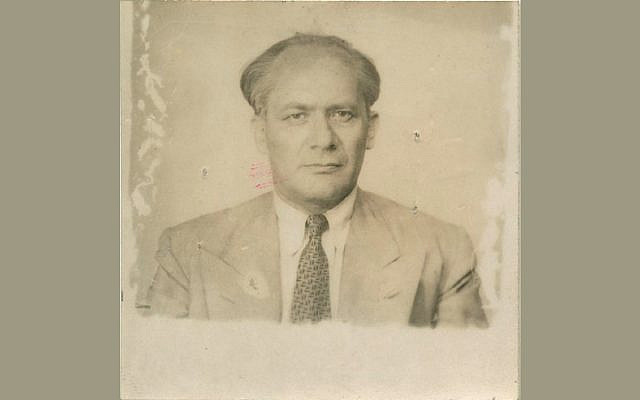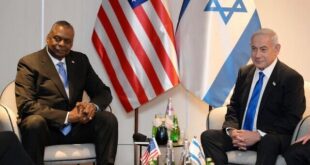Raphael Lemkin, a stateless Jewish refugee who died penniless, gave mankind’s greatest crime its name.
You won’t find him mentioned in the place where he had his greatest achievement…or inscribed on any roll of honor, not even a plaque on the wall. Yet this lonely refugee crusader who was nominated for the Nobel Peace Prize named mankind’s greatest crime and convinced the world to confront it.
He showed up at the United Nations in 1946, this man on a mission. He was seeking international support for his campaign against one of the world’s most horrible atrocities, that of the deliberate and systematic killing of a group of people because of their ethnicity, nationality, religion, or race. These acts of barbarism, which he sought to outlaw, and which Winston Churchill once called “the crime without a name,” now was given a name. Dr. Raphael Lemkin gave it the title of “genocide,” a term combining the Greek word genos, meaning race, and the Latin word cide, meaning killing of.
Chances are you’ve never heard of Dr. Raphael Lemkin. I hadn’t either until I uncovered several documents about him buried deep in the personal records and UN files of the late UN correspondent David Horowitz. The mystery was how could a man who had succeeded in moving nations and altering the course of history, one nominated repeatedly for the Nobel Peace Prize, be buried in obscurity, a forgotten figure in an international community who had once lionized him.
Raphael Lemkin was born June 24, 1901 on a farm in Eastern Poland. Unusually adept at languages, he studied philology, mastering nine languages before turning to the study of law. After earning a doctorate, he served as Warsaw’s public prosecutor, writing several books on criminal justice and contributing to the codification of Poland’s new penal codes.
During this period, he began a study of the Armenian massacres that culminated in his proposing before the League of Nations in 1933 that the crime of “barbarity” be declared an international offense alongside piracy, slavery, and drug smuggling. His proposal was met with indifference-just as Hitler was initiating his plan to annihilate European Jewry.
Until the German invasion of Poland in 1939, he practiced and taught law, attending numerous legal conferences sponsored by the League of Nations in an effort to gain support for his proposal. When the Nazis occupied Warsaw, Lemkin escaped to Sweden where he began compiling the documents that were to form the basis of his 1944 analysis of Nazi jurisprudence, “Axis Rule in Occupied Europe.” It was the first thorough examination of the procedure utilized by Hitler to undermine local law in the service of deportation and mass-murder. His document included the first known use of the term “genocide.”
Invited by Duke University to join its law faculty, he arrived in the United States in 1941 and soon after was hired as a consultant by the War Department. Following Germany’s surrender, his expertise in international law brought him to the attention of Supreme Court Justice Robert Jackson, chief U. S. prosecutor at the Nuremberg War Crimes Tribunal, where he served as an adviser to Jackson. At Nuremberg, his fight turned personal.
While in Nuremberg Lemkin learned that the Nazis had murdered forty-nine members of his family. Only his older brother Elias, Elias’s wife, and their two sons had survived. The rest had perished in Warsaw, in concentration camps, or on death marches.
After a brief reunion with his brother in 1946, Lemkin flew to England and later to France where he attended two international peace conferences in the hope of encouraging adoption of a resolution against genocide. He failed in both instances and was hospitalized in Paris as a consequence of dangerously high blood pressure.
While undergoing treatment, he learned that the agenda for the first regular session of the United Nations was being completed in New York. Returning in great haste to the US, he began drafting a resolution against genocide en route.
Dr. Lemkin arrived at the UN looking for help. His only hope of introducing the measure was to convince a few delegates to the UN to act as sponsors. Each day Lemkin visited the press section, trapping one correspondent or another, arguing his cause and hoping for the groundswell of publicity that would make the diplomats listen to him.
He lobbied. He lobbied hard. When he had a paragraph or two in a paper in Chicago or Boston, telling about him and his efforts to persuade the United Nations to attack genocide, he would exhibit it proudly. And on the day when he obtained three paragraphs in The New York Times, he could not be contained.
Eventually, two UN correspondents did a story on Lemkin, David Horowitz who wrote for multiple publications and veteran writer John Hohenberg, who then covered for The New York Post. Lemkin included copies of their articles with the small bundle of clippings that he kept with his daily sandwich in a battered black briefcase.
Although many of the professional diplomats had come to consider him an unmitigated nuisance, this “unofficial man” became a rather special person in the press section. Horowitz came to know Lemkin well and often aided him in many ways all through his days of struggle at the UN. So too, did Hohenberg who campaigned for the lonely crusader’s cause.
With this limited support, Lemkin finally persuaded Panama, Cuba, and India to introduce the measure before the General Assembly. He then researched and drafted supporting statements for thirty nations relating the crime of genocide to the history of each country. Finally, on December 11, 1946, the UN General Assembly unanimously resolved that genocide was an international crime and that a treaty should be drawn up defining it and establishing the judicial apparatus to counter it. Lemkin had achieved his first success.
When UN Secretary-General Trygve Lie asked him to submit a draft treaty, Lemkin resigned from the War Department to devote all his energies to insure its passage. For the next two years, Dr. Lemkin fought repeatedly to prevent the treaty from being tabled or weakened.
Through session after session and hearing after hearing, the lonely crusader steered his precious convention through the intricacies of United Nations procedures. His fear was that some countries might feel the convention might infringe upon their sovereignty and might take steps against it. One of these countries was the United States.
Two years later, on December 9, 1948, Dr. Lemkin sat nervously in the press gallery of the Palais Chaillot in Paris as the General Assembly prepared to vote on the Convention. One by one he heard the nations of the world vote “yes.” The count was 55 to 0. It was one of those rare moments in the history of the UN when, to universal acclaim, it adopted the first human rights treaty, determined that the lesson of the Holocaust would never be forgotten. It was the climax of a fifteen-year crusade by the Polish-born, Jewish refugee who had escaped Hitler’s grasp.
In one of Horowitz’s old articles, he described a tender moment following the Paris General Assembly vote. Many of the UN correspondents sought Lemkin for an interview, but he was nowhere to be found. Finally, A. M. Rosenthal of The New York Times, guessed where he might be and led some into the darkened Assembly chamber in the Palais de Chaillot. The session had long since adjourned.
On the stage where the President of the Assembly had proclaimed the unanimous adoption of the Genocide Convention, a cleaning lady was busy at work under the eerie light of a single electric bulb. And below, in the same seat he had occupied that day, was Raphael Lemkin. When the correspondents asked for an interview, he begged off. With tears in his eyes hidden behind thick glasses, Lemkin pleaded, “Let me stay here alone.”
Because the Genocide Convention could not become international law until ratified by twenty member nations, Lemkin set himself to the task of achieving unanimous ratification. In January 1951, ninety days after the twentieth nation agreed to abide by its provisions, the Genocide Treaty became international law. “This is a day of triumph for mankind and the most beautiful day in my life,” Dr. Lemkin told reporters.
Several times during those years of international celebrity, he was nominated for the Nobel Peace Prize. Hired by Yale University to teach the school’s first course on United Nations law, he divided his time between academia, the United Nations, and his private research into the history of genocide.
By the summer of 1959, Dr. Raphael Lemkin was all but forgotten by the public that had once celebrated him. At work on his autobiography, “Unofficial Man,” he died of a heart attack. When his friend and attorney Maxwell Cohn and several of Lemkin’s students hastily emptied out Lemkin’s shabby one-room apartment on West 112th street in Manhattan, they found several international awards and a number of honorary degrees along with memoranda prepared for foreign ministries and ambassadors with respect to the Genocide Convention. Some memoranda were for their personal use on other matters, contributions for which he never charged a fee.
There were over five hundred books, each of which had been read, underlined, and interlineated. And absolutely not a single penny was found.
In 1968, John Hohenberg, realizing how unappreciative the UN world was to this grand soul, wrote a feature story that was published in The Saturday Review. In his article he wrote “You will not find the name of Raphael Lemkin inscribed on any roll of honor in the green glass house on Turtle Bay; nor is it glorified in the official documents, or even mentioned in the UN Bible: Everyman’s United Nations. And yet, without Raphael Lemkin, that first magnificent crusade against the mass murder of human beings for racial and religious reasons would never have come to pass.”
Dr. Raphael Lemkin, the UN’s forgotten man died alone and penniless but was one of the century’s giants, a stateless Jewish refugee who named mankind’s greatest crime and convinced the world to establish a way of confronting it.
@jmn.info








